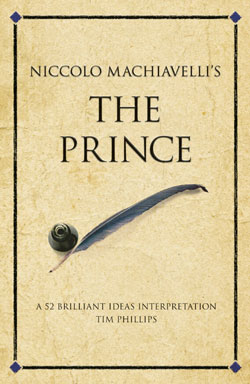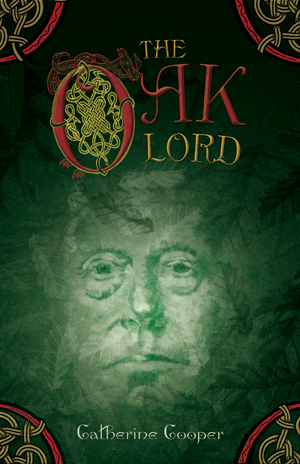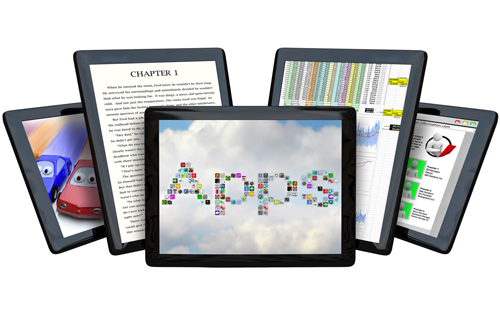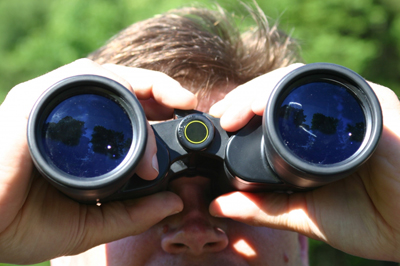Author Archives: Admin
How to ditch the gimmicks and fast track to fitness
29 January 2014 by Admin in Lifestyle
Gone are the days when a run in the park involved nothing more than a solid pair of Reeboks, three Weetabix, a purple shell suit and optional slobbery dog. In 2014, your weekly jog can involve any number of fancy gadgets and gizmos designed to enhance the running experience and improve performance. Developers are using the latest technology in new and innovative ways, and the market for fitness apps, websites and gadgets is growing faster than ever.
A glance at iTunes will show you what’s popular right now. Map My Run (part of a family of apps including Map My Walk, Map My Fitness and Map My Ride) is one of the top free fitness apps of the moment. It counts your calories and tells you how many you’ve burned, connects you with friends and suggests new routes. Most importantly, it maps your previous runs using GPS and records personal fitness stats, like heart rate. But running isn’t for everyone; if you prefer to work out in the gym or in front of the telly, you could try the 7 Minute Workout Challenge. It’s a clever interactive app that guides you through twelve exercises that, it claims, are scientifically proven to produce results in seven minutes. And like Map My Run, it contains other features such as a weight tracker, activity calendar as well as unlockable extras.
This might all sound like a belly-busting alternative to a pricey gym membership, but do fitness apps actually work? It depends what you’re looking for. Fitness apps can only go so far towards motivating a confirmed couch potato – the promise of a virtual trophy is no match for a personal, potentially lycra-clad Mr or Ms Motivator, and although sharing capabilities can go some way towards providing a sociable experience with a competitive element, for many the thought of a night at home with their phone is far less enticing than a game of footie or Zumba class with mates.
 Having recognised this fact, developers are looking for other ways to lure in potential buyers. This week Mashable is touting Fitmob, a website and app that brings together certified fitness trainers and would-be gym goers with the shared goal of reducing the costs of fitness instruction (read the full article here). The idea is that by attending sessions regularly, you pay less. The catch? Fitmob classes are in the initial stages of development – for now, unless you’re lucky enough to live there, you’ll need to catch a plane to San Francisco to attend.
Having recognised this fact, developers are looking for other ways to lure in potential buyers. This week Mashable is touting Fitmob, a website and app that brings together certified fitness trainers and would-be gym goers with the shared goal of reducing the costs of fitness instruction (read the full article here). The idea is that by attending sessions regularly, you pay less. The catch? Fitmob classes are in the initial stages of development – for now, unless you’re lucky enough to live there, you’ll need to catch a plane to San Francisco to attend.
Another popular fad this year is personal ‘fitness trackers’ – wristbands designed to track how often you exercise, how well you sleep and, like the apps mentioned earlier, monitor vital stats. Some reviewers of the leading brands (such as Jawbone Up and Fitbit Flex) are sceptical about how useful all this information actually is: ‘If mainstream users are going to get better insights, we will need smarter gadgets that collect more types of data, more accurately, which are backed by intelligent services that can turn that data into useful recommendations – immediately.’ (Read more here).
Through apps, websites and now even wearable accessories, developers and entrepreneurs are pioneering some fantastic fitness ideas; if the developers have their way we will have evolved into a race of super-humans by 2020 (we’re changing in other ways too – take a look at our previous ramblings to find out how technology is affecting the arts and media industries). But there’s a long way to go before these complex new innovations can provide a seamless, intuitive user experience, that gives the user more than just a list of statistics of dubious accuracy. It’s also hard to replicate the social, interactive aspect of a workout session that provides an essential motivating factor for all but the most hardcore gym bunny.
So for now, let’s go back to basics; ditch the naff bracelets, forget the virtual trophies and keep it simple. We know that good information is king, and that exercise should start with you. With the right frame of mind and the best ideas at hand you can develop a fun exercise routine and get the most out of your workouts on your own terms. So check out our range of books and ebooks, which are full of inspiration to kick start your fitness plans and find the way to a healthier new you. (By the way, just in case apps are more your thing we’ve teamed up with Mobifusion to develop Better Body Abs; remember to check back soon for more simple, effective workout apps that draw on advice from our very own expert authors … because let’s face it, Mr Motivator is just so 1993).
Google Glass, piracy and the digital world
24 January 2014 by Admin in Business and finance
2013 saw the addition of a new word to Urban Dictionary – Glasshole (s, n.): An obnoxious, disgustingly rich and/or famous wearer of last year’s controversial gadget-accessory Google Glass.
Google Glass is a voice-activated set of not-so fetching eyewear – simply utter the words ‘OK, glass’ and enter a world of divine gadgetry. By incorporating technology similar to Apple’s Siri (typically found lurking on the humble iPhone and iPad), Google have given Glass users access to a vast factual database: ask for directions; translate a line of Chinese; find out the status of your flight (business class of course)… and if you’re desperate to know just exactly how long the Brooklyn Bridge is, Glass can have the answer in a jiffy (Google is particularly proud of that one).
Surely we’ve all been there: a night out on the town sporting a minuscule (but wholly fabulous) handbag (or perhaps a smaller-than-average manbag, or a large-but-not-quite-large-enough pocket), with as little hope of taking a camera along as squeezing a hyperactive giraffe into the average attic space (to give you an idea, check out the expertly crafted video Giraffe (in my loft) by Weebl’s Stuff). But Glassholes know better. They can nonchalantly fling away their ‘old school’ cameras and video recorders, safe and smug in the knowledge that Google Glass can see, record and share what they see – handsfree (eat your heart out James Bond).
But hold the second mortgage: Google Glass has been somewhat slow to catch on – not least because you can’t simply pop down to your local electronics store to get your hands on one. The prospective Glasshole must sign up to the (we think rather pretentiously named) ‘Glass Explorer Program’ using an online form. Not only that: you must be a US resident, and you must initially be placed on a waiting list among, presumably, thousands or even millions of other aspiring Glassholes. So a select few privileged Glassholes are running rampant among the unsuspecting common folk, and concerns have been raised in the media not only about the average Glasshole’s unfair competitive advantage at boardgames, but more importantly about serious matters such as intellectual property and piracy. Who cares? I hear you cry. Well as content publishers, we do.
Imagine walking into a cinema and recording the entire film just by looking at it. A man recently arrested in Ohio under suspicion of doing just that was afterwards released when officials discovered that his prescription glasses were in fact out of action at the time. A spokesman for America’s Motion Picture Association dismissed the threat posed by Glassholes as (at least for now) insignificant, and one discerning commenter on a related news article noted: ‘A person using a head-mounted camera or Google Glass would have to sit absolutely still for 90–120 minutes in order to produce a viewable video. Imagining that someone is actually doing so and producing a video that would be a viewable alternative is really stupid.’ Stupid or not, perhaps concerns about piracy would be better focused on the ebook and app market, where copyrighted files frequently – inevitably – end up doing the rounds on illegal torrent sites. At an App Developers Conference in Los Angeles last year, a survey revealed that 26% of app developers had been affected by piracy. Disgraceful… (incidentally if you’re looking for a virus-free alternative to torrent sites, why not browse our ebooks on Kindle? We’re usually running a cheeky promotion or two, and they change monthly. We’re launching some fantastic practical apps soon, too, on our splendid website).
So with all the wonderful, low-priced content available in today’s digital marketplace, perhaps the main concern about Google Glass isn’t piracy (avast, me hearties), but personal privacy. We can’t help but feel a little uneasy at the thought of being caught on camera by any Google Glass-adorned Tom, Dick or Harry we happen to encounter after a long day at the office. And we’re not alone. Campaigners at Stop the Cyborgs (no doubt well acquainted with George Orwell’s 1984 and similar visions of dystopia) are condemning Google Glass as just another part of the ‘iron cage of surveillance’ that confines modern society.
But Google is championing its latest bit of kit for its practical capabilities, rather than as a discreet (really?) spying tool. Go to the official Glass website to read ‘explorer stories’ from people who actually put the device to good use and have some inspiring stories to share (we’ll let them off, then). But we won’t forgive the techie boffin who developed Glance for Google Glass, a new ‘sex app’ designed for couples wanting to ‘experience sex like never before’. We appreciate the gesture, but just… no. And just in case you’re itching to know the total length of the Brooklyn Bridge, it’s 1,825 metres. Thanks, Google!
Why traditional arts and media businesses are missing a trick
22 January 2014 by Admin in Book publishing
We were interested to read this Bookseller article about a new prototype platform which aims to catapult the world of theatre into the digital age by providing an instantly accessible, portable and affordable way to experience play scripts.
The platform Uneditions, developed by Leeds-based Unlimited Theatre, enables the creation and distribution of digital play scripts for tablets, phones and computers. The key selling point here is that the scripts are much more than the boring old plain text found in any printed or ebook version of a play. These scripts incorporate lighting, sound, and text layouts designed to create the illusion that the reader is actually watching the action.
By bringing the art of theatre directly to you, the user – whether on your laptop at home or an iPhone at the bus stop – Uneditions are transforming the way plays are delivered and experienced, thereby making the art of theatre instantly accessible to a wider market than ever before. And because Uneditions will allow theatre companies to self-publish their own play scripts, the platform presents a massive opportunity for stimulating a previously untapped revenue stream. The developers say: ’This project is a sincere, rigorous wondering about how we … can better transpose the stories we’re telling to other mediums. I’m excited by the potential that our digital play script has to allow existing audiences to deepen their understanding of the work we make, and also, importantly, open our and our sector’s work up to a much wider range of people.’ The development of Uneditions is incredibly timely. Given the major switch to digital that many arts and media sectors are making, it is precisely the right climate for experimentation with new ways of creating, delivering and disseminating content.
Twenty-first century consumers expect to be able to access whatever they need immediately – with little fuss and at minimum expense, and the breadth of choice now available from online stores has led to a new kind of economy focusing on a ‘long tail’ of products. In music, the age of the CD album has given way to a dawn of discovery where you can try before you buy. Online stores offer a musical pick ‘n’ mix where you – rather than the record company – are in charge of how you consume; the age of the album may well be over. The rise of subscription services such as Last.fm and Spotify means you can listen online to the songs, artists and genres you are likely to enjoy; create playlists and customised radio stations to play on portable devices; match your musical tastes with those of others around the world and identify nearby gigs that you wouldn’t want to miss. Artists are able to reach a wider potential audience, not only through subscription sites but also through official accounts on social media sites.
The digital revolution has good news for writers too: internet bloggers and self-publishers are making themselves heard where otherwise their voices would be lost among a mountain of submissions and forgotten in a publisher’s slushpile. As a consumer, you can turn to your e-reader for faster access to cheap content where the text opens up a new online world beyond the story. Apps such as Readmill and Wattpad have developed to cater for a new breed of reader whose scribbles in the margin can be disseminated to, and discussed by, a whole community of readers – perhaps even the author. So publishers are increasing their digital output to cater to demand – and raking in the extra revenue that comes with it.
In many circles it is accepted that it is not the strongest of a species that survives, but the one most adaptable to change. This is especially pertinent in light of the threat posed by online stores offering instantaneous purchasing at rock bottom prices. Bookstores and music shops are having to think outside the box. The troubled UK high street retailer HMV has for some years stocked books, electronic equipment, T-shirts, posters and other merchandise to compensate for the falling sales of CDs (replaced by digital downloads) and DVDs (replaced by subscription and home mailing services). Services such as Netflix and Lovefilm make it possible to stream films and TV programmes directly whenever you want; Netflix premier content exclusively for subscribers, and have even commissioned brand new TV series, taking viewing habits even further away from the traditional model than ever before. Waterstone’s now stock luxurious hardback tomes with high production values – the kinds of books that can’t be replaced by an e-reader – next to stationery, gifts, and the latest reading devices, tablets and accessories. Many independent bookstores are transforming into coffee shops and luring in casual buyers with fine Victoria sponges displayed alongside the latest bestselling paperbacks. The canniest of booksellers are hosting a wide variety of exclusive in-store events such as launch parties, author signings and poetry evenings – and communities are growing around them.
So it is not only the way we purchase content that is changing, but the way we experience it. The effects of this can be seen in almost every sector of arts and media – in literature, music, film, TV and now even theatre. We are consuming more, and faster, than ever before. To profit from the growing demand for content in a variety of forms, it is necessary for businesses to act fast, be flexible and, above all, be imaginative. Sales in the arts and entertainment industries are no longer purely physical, and the way we experience content is changing almost beyond recognition. This presents not a threat, but an opportunity – those who fail to see it as such are missing a trick.
Five-hundred years of tyranny?
16 December 2013 by Admin in Business and finance
The Prince (previously titled De Principatibus or About Principalities) was written five-hundred years ago by Italian diplomat Niccolo Machiavelli, following his imprisonment under suspicion of conspiracy. He suffered torture on the rack and afterwards, being disillusioned by injustice and confined within his study under house arrest, he wrote his unapologetically cynical pamphlet. It was to revolutionise the way people think about human behaviour – influencing generations of politicians, military leaders, businesspeople and even global institutions. Published five years after Machiavelli’s death, The Prince now sits among Collodi’s Pinocchio and Dante’s Divine Comedy as one of the most translated Italian texts.
In The Prince, Machiavelli explains how to gain power by any means, and how to hold onto it. He did not feel threatened by notions of hell and judgement or divine wrath; instead he believed that sins can be excused if they have an outcome that is beneficial to society. He regarded success as a strategy game based on strength and cunning, so it is unsurprising that Mussolini wrote his dissertation on The Prince, that politicians are frequently referred to as Machiavellian, and that one of Machiavelli’s most famous pieces of advice is that it is more advantageous to be feared than to be loved: love can be conditional, but fear is ever-present in those who feel intimidated.
Although first recorded five-hundred years ago, Machiavelli’s observations are studied and applied even today. Intimidation tactics are widely used in warfare and, in battle, morality is rarely the primary consideration. In business, it is well known that productivity can be increased by maintaining emotional detachment. It is usually the most ruthless businesspeople who reap the highest returns, and successful global corporations looking to minimise competition often buy out their nearest rival or find a means to crush it. According to Machiavelli, survival is key: in order to thrive in a world where people are deceitful, fickle and underhand, it is necessary to dominate, to be fortunate, and, ultimately, to be feared.
 Although Machiavelli’s outlook on society is a bleak one, the lessons in The Prince offer a way for individuals to control their lives, to influence others and to succeed in their own chosen pathway. Machiavelli was ruthless, selfish, underhand and immoral; he encouraged five generations of tyrannical thinkers. But, crucially, he believed that by emphasising your ‘higher purpose’ and always showing your best side, you were more likely to succeed. And it’s hard to argue with that.
Although Machiavelli’s outlook on society is a bleak one, the lessons in The Prince offer a way for individuals to control their lives, to influence others and to succeed in their own chosen pathway. Machiavelli was ruthless, selfish, underhand and immoral; he encouraged five generations of tyrannical thinkers. But, crucially, he believed that by emphasising your ‘higher purpose’ and always showing your best side, you were more likely to succeed. And it’s hard to argue with that.
Find out more about Machiavelli’s seedbed for controversy in our modern-day interpretation of The Prince, and take a look at this BBC documentary, created to celebrate the five-hundredth anniversary of Machiavelli’s original text.
NEW children’s adventure finale: The Oak Lord by Catherine Cooper
29 November 2013 by Admin in Book publishing
On 2nd December Infinite Ideas will publish The Oak Lord by Catherine Cooper. This fifth Jack Brenin book – a children’s adventure finale – belongs to a series of books that would be completely at home on a shelf next to C.S. Lewis’ The Chronicles of Narnia, Tolkien’s The Hobbit, J.K. Rowling’s Harry Potter and Philip Pullman’s His Dark Materials. Hailed by the Observer as a potential successor to Rowling, Catherine is already planning for the myriad opportunities that this new release – the conclusion to her bestselling series – will bring.
Opportunities for authors reach far beyond author events and book signings – a significant proportion of a book’s marketing activities is now done online, through social networking sites and reading communities such as Goodreads, Readmill, and Wattpad (all of which integrate the latest digital technology into their functionality). And with the growth of the ebook market, it is now easier than ever for readers to discover and instantly access the newest releases from their favourite authors. Although a recent survey showed that 62% of young adults favoured printed books over ebooks, a book can no longer be solely a printed book and survive in today’s overcrowded market. It must have a digital presence (ebook or even app) and, ideally, accompanying online resources in order to reach its full potential. With this in mind, Catherine has been busier than ever, running competitions and posting news updates and features on her popular website and Facebook pages. She does all this alongside her regular activities, which recently included an interview with BBC Radio Shropshire, various ‘meet the author’ sessions, speaking to groups and at conferences, book signings and school visits. ‘It’s a 24/7 job being an author but I love every minute of it’, says Catherine.
 As a retired schoolteacher, Catherine believes strongly in the opportunities that magical books can provide for children, and she works tirelessly to encourage a joy in reading among children. She was delighted when, this year, The Golden Acorn was recommended by The National Literacy Trust for Key Stage 2: ‘shared and guided reading’, and she works closely with schools and reading schemes such as KidsReadWriteReview, and the Beanstalk charity that brings the gift of reading to thousands of children each week. She is also currently developing a reading resource for teachers, which will enhance the reading experience for children and teachers alike. Packed with cross-curricular links, it will include suggested questions to answer, themes for discussion, skills-based homework, word games and other fun activities as well as interactive links to websites where related information can be found.
As a retired schoolteacher, Catherine believes strongly in the opportunities that magical books can provide for children, and she works tirelessly to encourage a joy in reading among children. She was delighted when, this year, The Golden Acorn was recommended by The National Literacy Trust for Key Stage 2: ‘shared and guided reading’, and she works closely with schools and reading schemes such as KidsReadWriteReview, and the Beanstalk charity that brings the gift of reading to thousands of children each week. She is also currently developing a reading resource for teachers, which will enhance the reading experience for children and teachers alike. Packed with cross-curricular links, it will include suggested questions to answer, themes for discussion, skills-based homework, word games and other fun activities as well as interactive links to websites where related information can be found.
The Oak Lord won’t be the end for Jack Brenin and his friends: Catherine’s plans include several standalone books and a series of short stories for younger readers, each of which will focus on one of her best-loved characters. Finally, don’t forget to look out for our forthcoming ebook The Legend of Howling Hill, the story of how a very large fire-breathing Dragonair became the last of its kind.
Book publishers and the world of apps
20 November 2013 by Admin in Book publishing, Business and finance
On 23rd November 2013 the BBC will air the 50th anniversary episode of Doctor Who, Day of the Doctor, and it’s interesting to read how various publishers are producing apps – to cash in – as Dr Who fever sweeps the nation (see the Guardian article here).
You wonder how many people will spend £1.99 on the Sonic Screwdriver app from Useless Creations (what a fab name by the way). While it sounds like a lot of fun – we’re Tom Baker and Louise Jamieson junkies at Infinite Ideas – you have got to ask: Why? Are people really going to be walking around waving their virtual Screwdriver in the streets in order to emit various Dr Who themed noises? I suspect they’ll get some strange looks if they do.
The article also mentions the Random House Dr Who Encyclopaedia app published a couple of years ago to coincide with their printed edition of the same. This seems to be the way that most conventional book publishers have been approaching the app world of late – using apps as  promotional tools to enhance print copy sales. The big name TV chefs (Jamie, Nigella et alia) all have apps, usually free, which promote their various TV series and the accompanying books. So, as the price of developing apps plummets, iStore and other app platforms are becoming an important part of book publishers’ marketing activities.
promotional tools to enhance print copy sales. The big name TV chefs (Jamie, Nigella et alia) all have apps, usually free, which promote their various TV series and the accompanying books. So, as the price of developing apps plummets, iStore and other app platforms are becoming an important part of book publishers’ marketing activities.
But can publishers create their own apps from content that they own and generate serious income streams? Our experience at Infinite Ideas is very much that they can. We own a database of great consumer content and creating apps is a logical extension of our long-held ambition to be able to deliver great content at the very point the user needs it. We’ve worked with top app developer Mobifusion on a range of lifestyle apps – check out our Better Body series: Abs, Dance workout and Total body workout, all of which have done very well for us.
The app market is maturing and up until very recently, developers have been concentrating on games – just think of the colossal success of Angry Birds, Stick Cricket, Candy Crush Saga and others. But as apps become mainstream and the user demographic widens, app platforms will become a serious source of revenue for book publishers prescient enough to own their own content and clever enough to repurpose it.


